#Essay and Thoughts
Explore tagged Tumblr posts
Text
A Different Kind of Bravery
By nature I am not a brave person. Put me in a room with unfamiliar people and I cannot speak. I don’t embrace change and am incredibly happy living my life. Yet when I think back over the years, a number of events arise in which I had to fight against my nature and be brave. As a young child I preferred my own company, so going to school was a frightening experience. As the years passed I did…
View On WordPress
#being afraid#being fearful#breaking away from fears#developing confidence#Emotions#Essay#essay aboout how we are perceived#essay aboout life#essay about a true experience#essay about awareness#essay about being alone#essay about confidence#essay about developing confidence#essay about fear#Essay and Thoughts#Fear#Feelings#not being afraid#Personal Essay#relationships#Thoughts#writing about fears
4 notes
·
View notes
Text
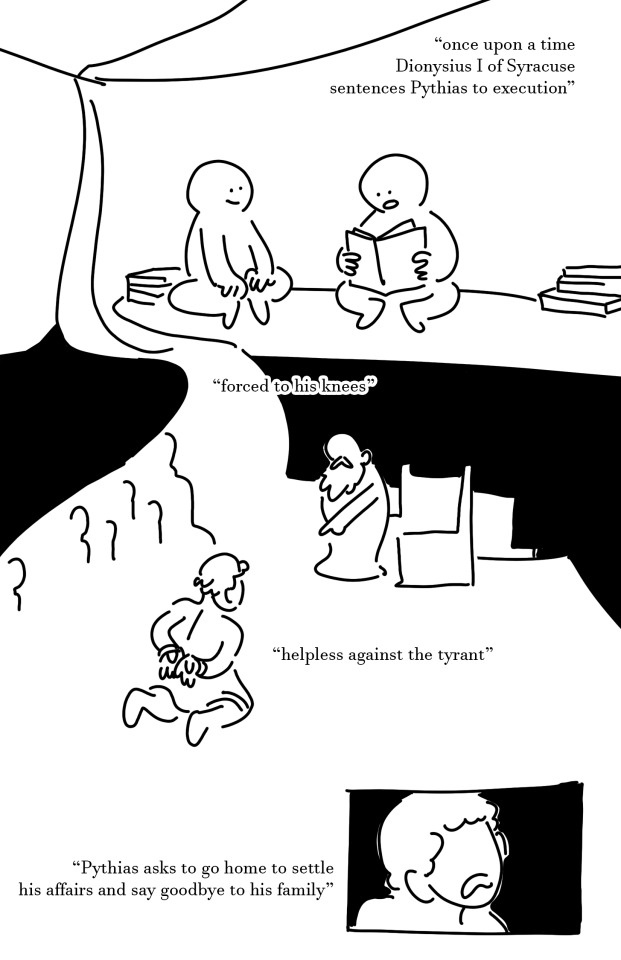
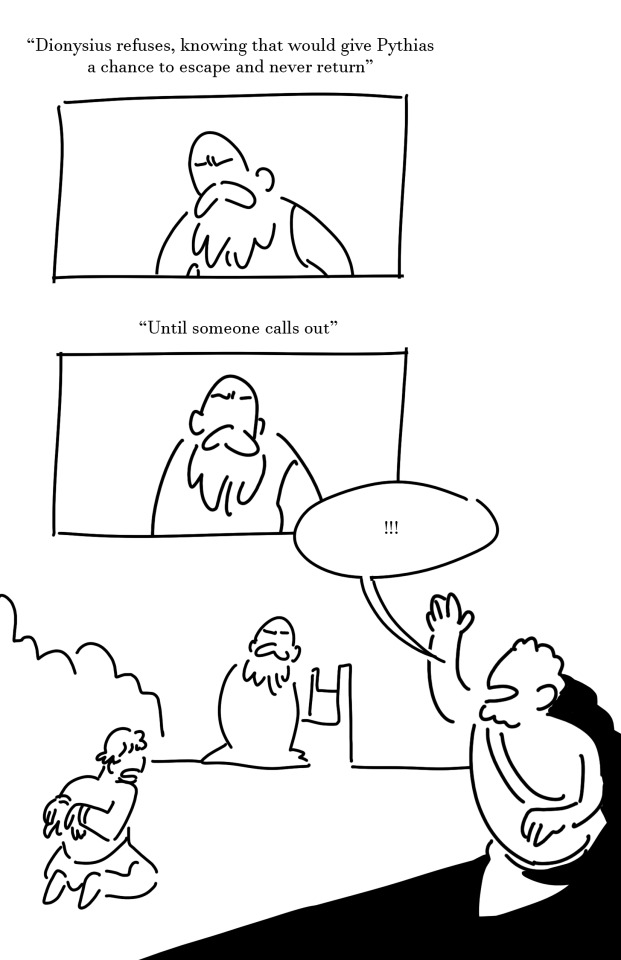
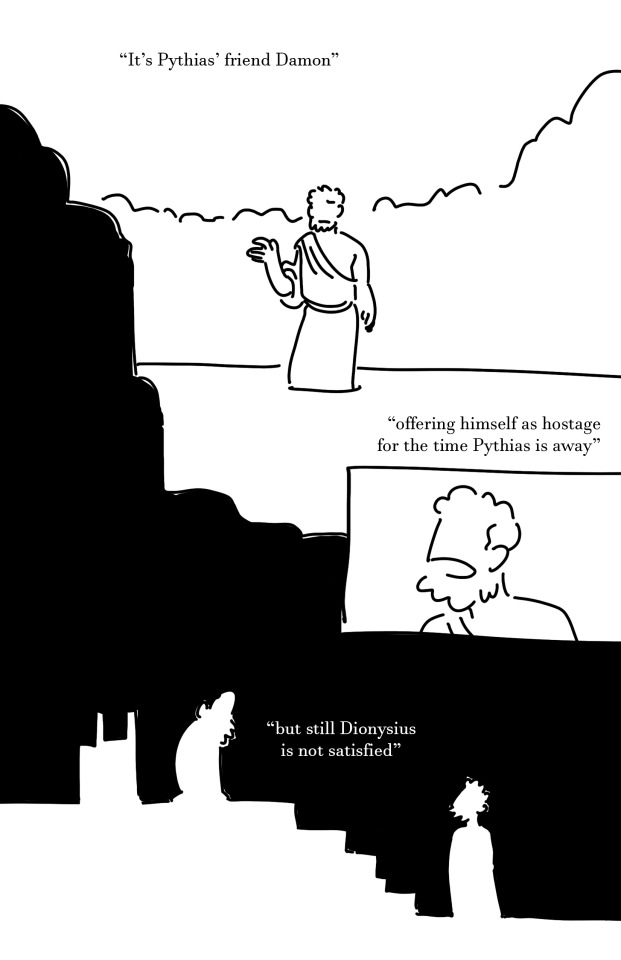
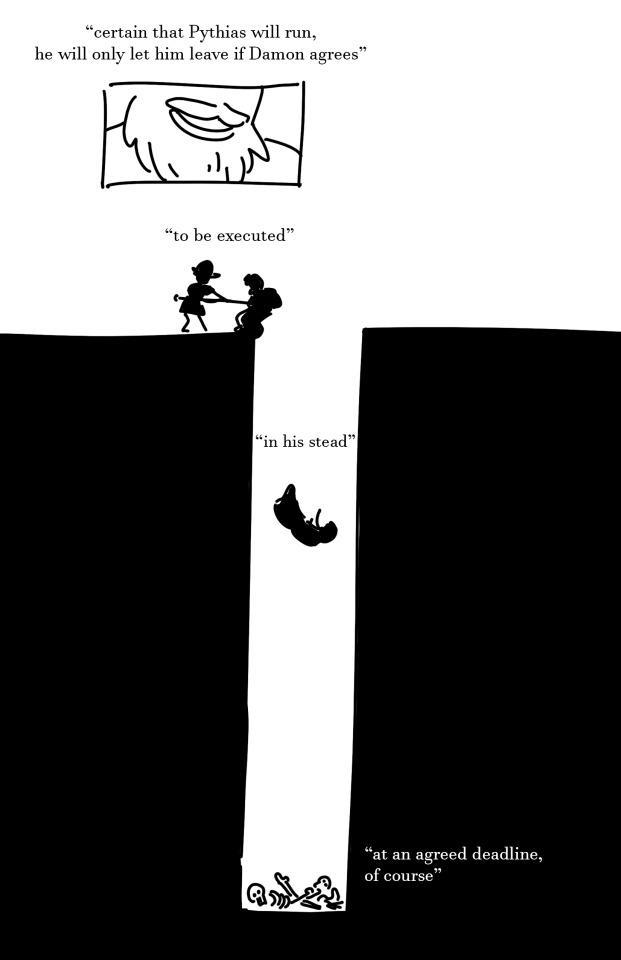
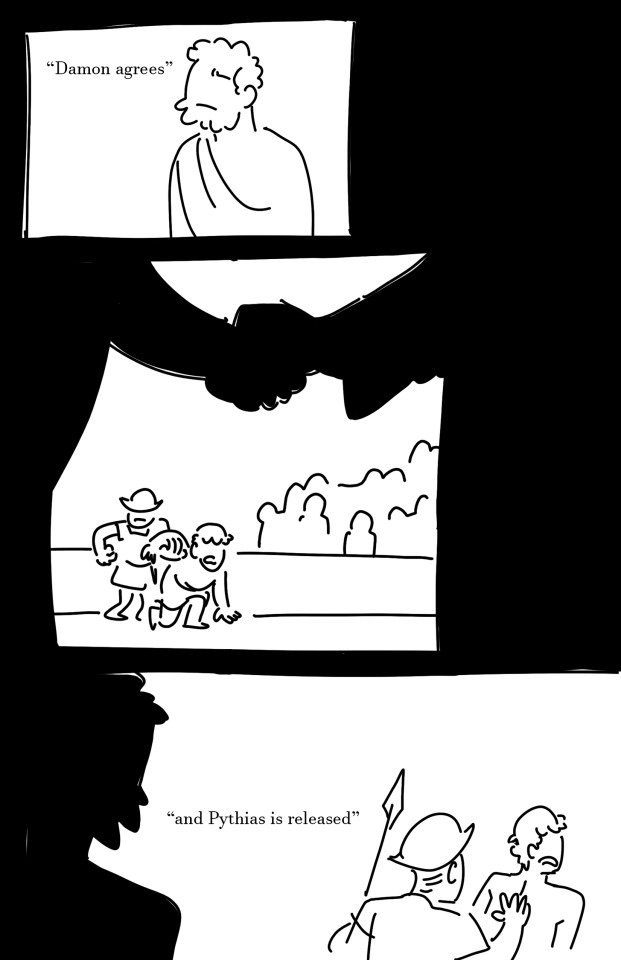
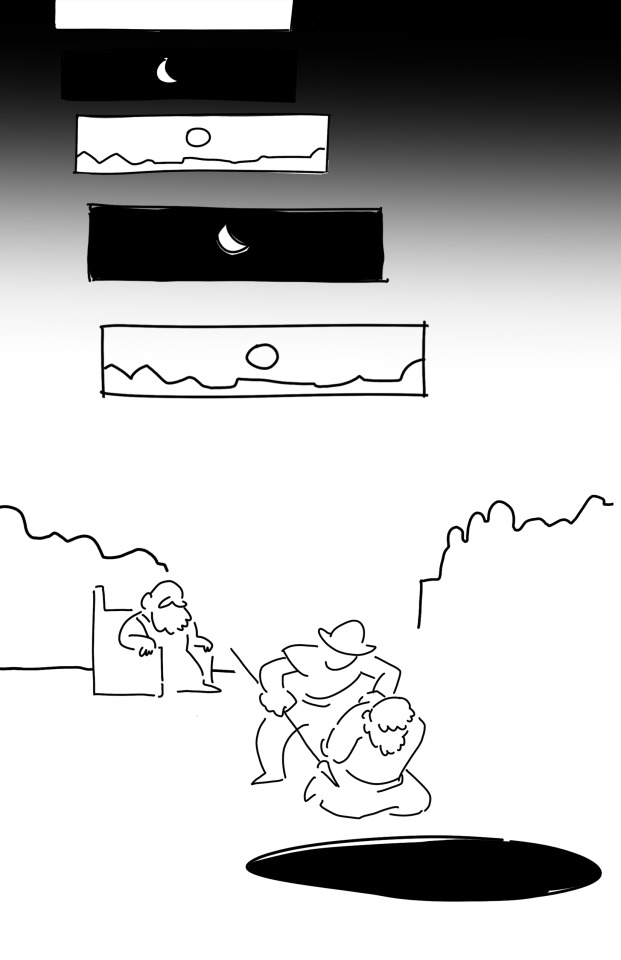
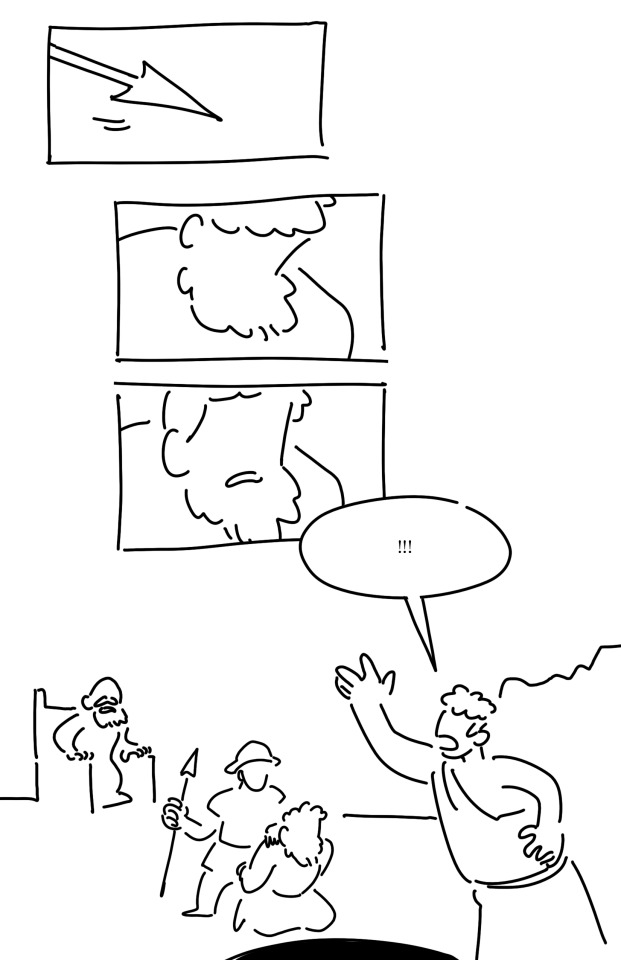
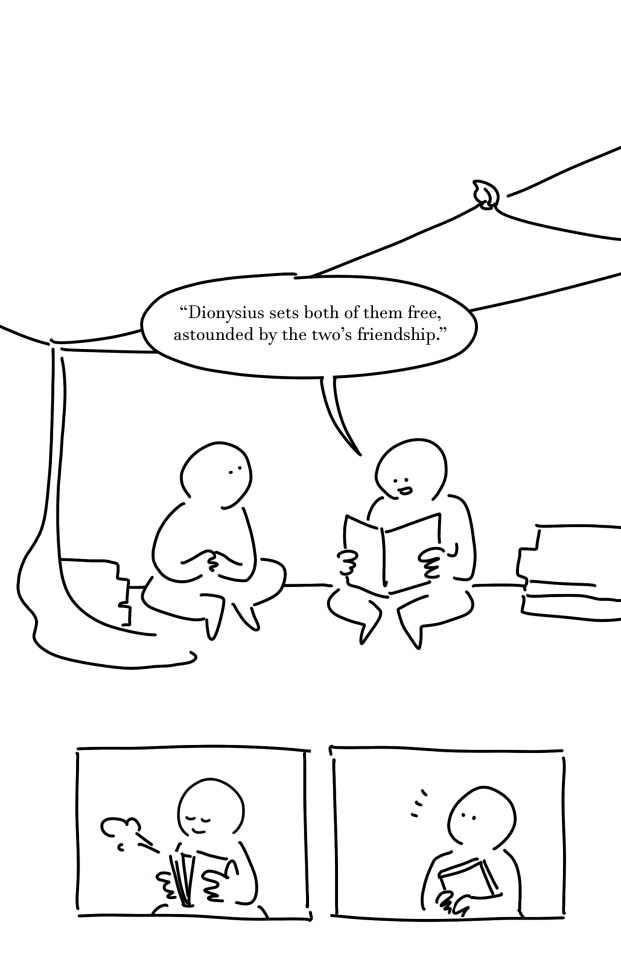
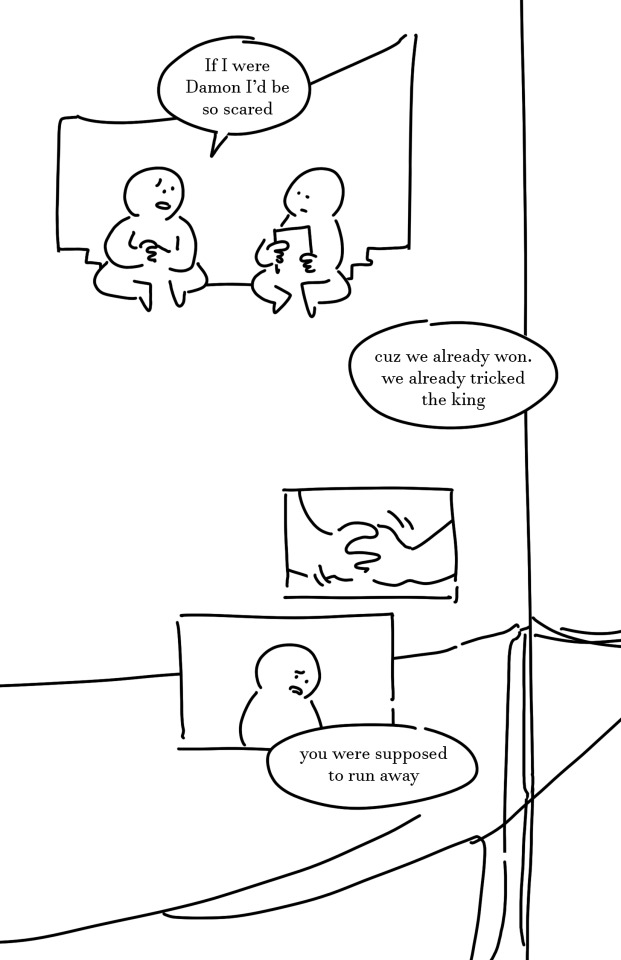
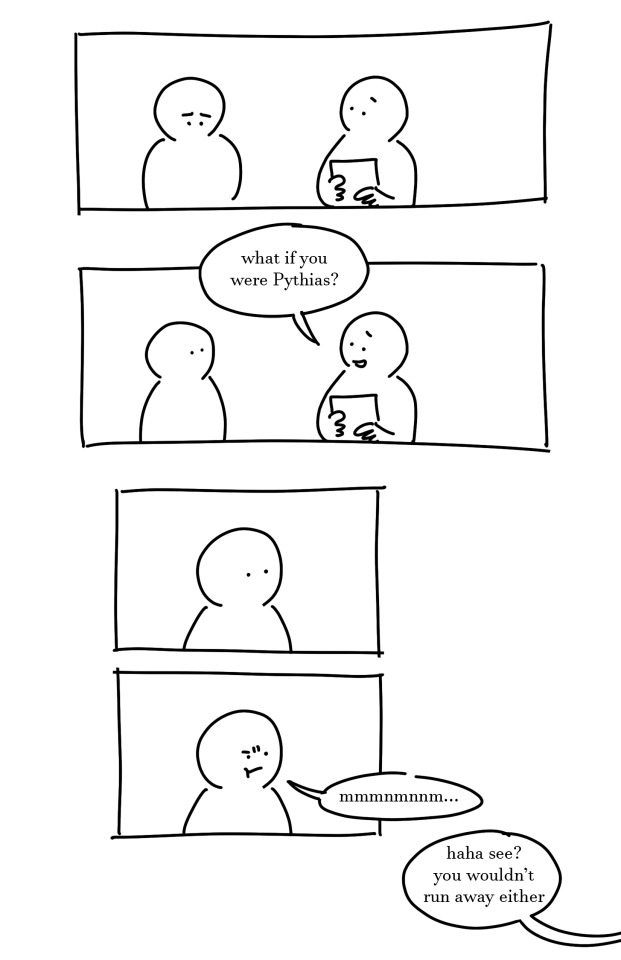
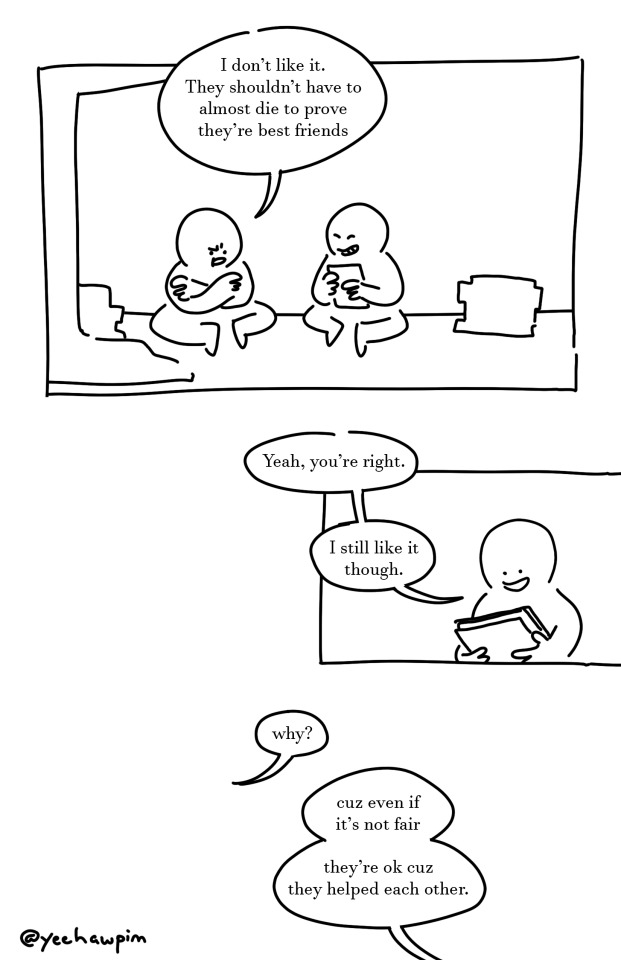
#original comic#webcomic#we go together#artists on tumblr#greek legend#damon & pythias#slightly different this time in that Dionysius I of Syracuse was an Actual person 😂#but i heard about this in breadsword's video essay on the legend of sinbad and it was so good I had to write smth with it#also i thought the plot of the legend of sinbad was the smartest shit when I was a kid lol#indie comics
22K notes
·
View notes
Text
Jorge did an excellent job in showing Penelope's character and why Odysseus and Penelope are made for each other in just two songs
Of course throughout the whole saga we are told Odysseus loves Penelope more than anything, she and Telemachus are his one life line and one motivation to getting home
But when we finally heard Penelope, in her two actual songs (by that I mean not counting Ody's hallucinations and the siren), we are shown why
In the challenge, she's smart, shown by her weaving and unweaving the shroud, and in setting a challenge that she knows only Odysseus can complete once she suspects he's close to home. She's steadfast in her love, never faltering in the face of 108 strong men taunting her, and pressuring her every single day. She's a queen, holding herself with dignity and authority. She's an amazing woman.
In Would You Fall In Love With Me Again, she once again demonstrates her intellect both logically and emotionally by testing Odysseus with the wedding bed. Then she breaks down in tears and anger letting go of all the pain and suffering and longing and yearning and agony she's gone through in the past 20 years. She was in so much pain and agony, but she kept waiting.
This is a story about a man who moved mountains and seas for his love and a woman who stood still in the midst of storms and terrors for hers.
2K notes
·
View notes
Text
im not putting this post into words. beams into your mind The Parallels


.


.


.


.


.


.


.



.


.



.




.

.


#not a new thought at all of course but i havent seen a post thorough enough for Me. the guy who thinks about it a lot#and this isnt all my thoughts either but it at least Touches on each element that i think about...#honestly where i could talk for ages is where the similar things were Different for them. but harder to organize#if you actually went and looked at all these panels with me. thank you for coming to this Presentation and Journey#i hope my Beam is having an Effect.#dungeon meshi#dungeon meshi spoilers#delicious in dungeon#thistle dungeon meshi#marcille donato#long post#can i be forrealsies i made this post ages ago and was just referencing it while drafting one About the contrasts and accidentally hit post#so ig might as well keep it up instead of hoarding it in my drafts. and maybe ill post That essay here someday#tistle tag#my posts
4K notes
·
View notes
Text
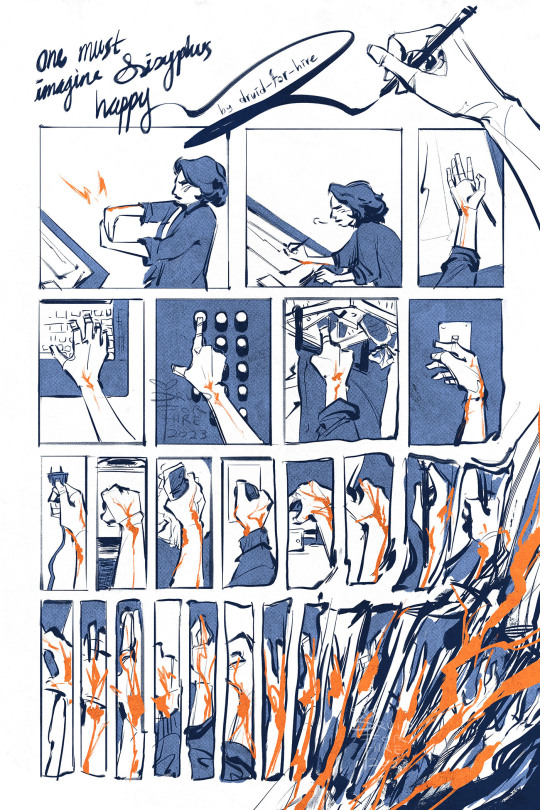
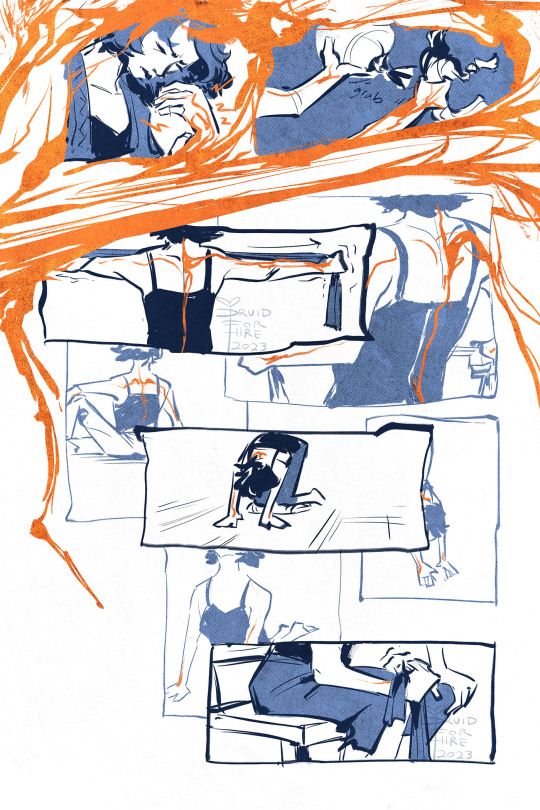
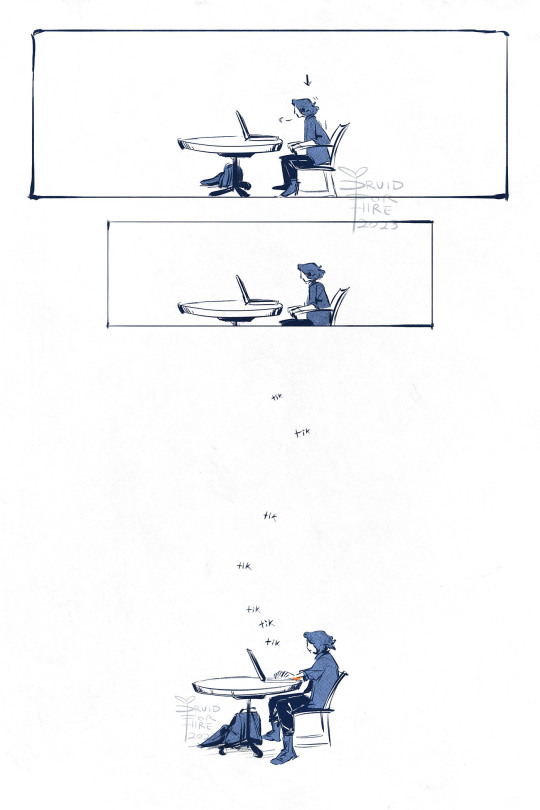
[images ID: three images of a comic titled "one must imagine sisyphus happy" by druid-for-hire. it is a visual narrative beginning with someone with wrist pain (depicted by bright orange nerves) working at a drafting table. the reader is shown the same wrist as the person uses it for many everyday tasks such as carrying a grocery basket, pushing elevator buttons, typing, and doing dishes, until the pain dissolves all the panels into chaos. the person then performs several physical therapy exercises until the pain subsides. they sit back down at a desk with their laptop, sigh, and begin typing. a small spark of pain reappears. end id]
a fun little piece i made during the semester and submitted into our school comic anthology! (which you can buy at the Static Fish table at MoCCAFest in NYC ;] ). it's about artists and injury
#comic art#comics#original comic#chronic pain#carpal tunnel#tendonitis#my art#original#edit: what a delightful surprise to see this take off#this was made for class on very low fuel and very few thoughts and late at night and exhausted#the prompt was just a wordless narrative essay. three pages. and i had nothing and no ideas#and my head hurt and i was too tired to think about doing any of the like. research and mind mapping and ideating i'd do otherwise#but my arm hurt#so i decided to do a thing about arm hurty#i'm surprised to see so many people finding it resonating with them#but then again i shouldn't be. the universal lies in the specific#i should make more things about smaller stuff
12K notes
·
View notes
Text
now that the initial shock is over can we talk about how hesitant sylus is to take the lead almost as if he still thinks this is one of his dreams or pocket of reality with mc from their first life? the way he asks her if she’s sure she doesn’t want him to leave, his gentle touch on her face while he kisses her, him clasping his hands with her after he carries her so sweetly like his bride to his room, how he finally gives in and just let her love on him and how he cages her with his arm while he hungrily kisses her like a touch starved man who’s been waiting for the love of his life to come back to his arms after a millennium of being apart like yes sylus is dominating but when it comes to mc he’s nothing but soft and gentle and you can see it in his eyes and how he so readily surrenders to her at every whim
#in this essay i#i love him#so sorry rafayel you will always be my first lads man#but sylus owns my heart now#love and deepspace#l&ds#lads#sylus#love and deepspace sylus#l&ds sylus#lads sylus#sylus x reader#ridox thoughts
2K notes
·
View notes
Text
Why I Love Caitlyn, and Why You Hate Her
⚠️ READER DISCRETION: I am not condoning Caitlyn’s actions and behavior, I am simply exploring the depth of her character and explaining what motivated her pursuit of revenge.

There’s no denying the gravity of Caitlyn’s actions as they are unquestionably wrong. However, her character cannot be reduced to these actions alone. This sudden, devastating behavior of hers is shaped by a thread of complex motivations and circumstances, but many choose not to acknowledge this simply because of her elite background.
Like many others, I initially overlooked the point of the gassing in Zaun, which I think is a crucial thing everyone must first understand before diving into the discourse over Caitlyn's character.
The Grey, often misunderstood as being used indiscriminately, was strategically deployed against the Chem-Barons to limit collateral damage. Caitlyn chose precision over chaos, targeting those directly responsible for Zaun’s turmoil. Furthermore, Caitlyn didn’t kill the Chem-Barons; she captured them, with net-deploying bullets. While her methods are controversial, they reflect a calculated approach; mischaracterizing her raid as a reckless attack ignores these details.
This isn’t to deny or excuse the fact that Caitlyn did, indeed, gas Zaun. Who’s to say that gas didn’t seep into the streets where innocent Zaunites roamed, harming them in the process? It’s entirely possible that innocents were affected and devastated. However, my brief explanation is only added to gain better perspective over the objectives of the gassing itself.
Now moving on, despite her privileged upbringing, Caitlyn shows a genuine effort to understand and connect with Zaunites. She places her trust in Vi, a Zaunite she’s never met before, to guide her in her search for Silco. Her journey through the undercity opens her eyes to the struggles of its people, challenging her perspective.
In S1E4, when investigating the airship attack, she encounters an undercity resident and reassures him, “I can protect you.” Later in the season, when Vi gets stabbed, Caitlyn encounters someone formerly connected to Vi. He’s grown a distaste over himself due to his appearance, and yet Caitlyn embraces him with compassion and tenderness, as a silent sign of gratitude. Then, she surrenders her cherished firearm—her only means of protection—in return for a healing potion to save Vi. In S1E7, Caitlyn’s heartfelt monologue in her conversation with Ekko perfectly captures her hope and determination: “This city needs healing. More than I ever realized. Please, let me help you.”
When Caitlyn and Vi stand in front of the Council, Caitlyn declares: “Councilors, this is Vi. She was born in the undercity. Even though we failed her in countless ways, she risked everything to show me what life is really like down there. People are starving, sick, ravaged by Shimmer. They live in constant fear of the coordinated efforts of violent crime lords.” This monologue alone shows how Caitlyn embodies optimism, believing in the inherent goodness of people, even Zaunites. It also shows that she is very willing to fight for them; she sees helping Zaunites as an act of bringing justice and equality into this world.

Many overlook the depth of Cassandra and Caitlyn’s relationship, reducing it to a simple narrative of a daughter mourning her mother. However, Caitlyn’s mourning is more layered than that. Throughout her life, she has been rebellious, driven by a desire to uncover the reality her mother tried to shield her from. In S1E4, Caitlyn reflects on this by saying, “She’d do anything to keep me from seeing the real world.” Caitlyn’s defiance wasn’t just rebellion for its own sake—it was a stand for her ideals. She sought enlightenment and understanding, even if it meant stepping outside the privileged bubble her mother built for her. By venturing into the undercity and aligning herself with Vi, Caitlyn rejected her mother's own ideals.
Here's another scene in S1E8 that emphasizes this:
Cassandra: You're a Councilor's daughter. Your actions reflect on the entire body. Caitlyn: My actions? You know what else reflects on the Council? Its citizens living on the streets. Being poisoned. Having to chose between a kingpin who wants to exploit them and a government who doesn't give a shit!
In a way, her actions mirror Vi’s: just as Vi betrayed her people by working with the enforcers, Caitlyn betrayed her own mother by involving herself with Zaunites. Remember: The last time we see Caitlyn and Cassandra interact on-screen is during Caitlyn’s plea before the Council. And in that moment, Caitlyn was fighting to protect the very kind that would soon kill her own mother.
You say that Caitlyn’s drastic shift is unjustified, as she’s only experienced a fraction of the suffering Zaunites have been enduring. But that’s precisely the point! Her transformation shows how personal loss can drive the change of one’s entire character; she’s never experienced loss before which is why it feels so heavy for her. And unlike Zaunites, Caitlyn actually has the power to act on her grief. Zaunites have only known misery their whole lives. When their loved one dies, they know there is nothing more they can do but grieve. They don’t have an inch of the privilege and military support Caitlyn has. If you had given them the same resources as Caitlyn, they wouldn’t hesitate to bring ruin to Piltover. Simply put, they don’t fight Piltovans because they don’t want to, but because they can’t.
When Jinx takes her mother away, her compassionate ideals completely shatter. Having always sought justice and understanding for Zaun, Caitlyn feels deeply betrayed, as her faith in the good within every Zaunite is overturned. Her mother’s death becomes a turning point—driving her to abandon her ideals and adopt Piltover’s disdain for the undercity, finally understanding the resentment many Piltovans harbor.

We also tend to forget that, aside from losing her mother, Caitlyn has directly suffered under the hands of Jinx. Caitlyn was held captive by Jinx in Season 1—and God knows what was done to her during that period. In the tea party scene, we see Caitlyn break down in tears, visibly flinching when Jinx moves toward her. It’s clear that Jinx has traumatized Caitlyn not just once, but twice. These experiences deeply shape Caitlyn’s actions moving forward. The pain and fear she’s endured push her to a place where she’s willing to sacrifice almost anything, even if it means putting a child’s life at risk (Isha's) or severing ties with Vi.
While they share their differences, Caitlyn and Jinx are the perfect example of foil characters. Here’s an instance which proves this: Both allow themselves to be influenced by manipulative, powerful figures all while being in a vulnerable state of mind.
Jinx is haunted by guilt; her attempt to save her family only ended up killing them, leaving her with the crushing weight of self-blame. She clings to Silco, not because he was the father she needed, but because he was the father she wanted. Silco indulged her destructive tendencies, keeping her at an all-time high on the edges of chaos. Fragile and broken, Powder crossed paths with Silco at the right moment; he saw the perfect chance to mold her into someone bewildered, unrestrained, and astray.

Caitlyn has her own Silco: Ambessa, the ruthless Noxian leader with a brutal philosophy of war. Ambessa enters Caitlyn’s life at a pivotal moment, stepping in just as Caitlyn is grappling with the devastating loss of her mother. In a spiral of self-identity, Caitlyn struggles with the weight of Piltover’s expectations and her unresolved guilt over her strained relationship with her mother (as explained in previous paragraphs). Just as young Powder mourns her family, Caitlyn blames herself for the death of her mother. Caitlyn got herself involved with the Zaunites even when she was warned not to, and at the expense of her defiance came the death of her mother. Driven by guilt and a thirst for vengeance, Caitlyn steps fully into her role, declaring in S2E1: “I am a decorated officer. Leader of House Kiramman.”
Jinx and Caitlyn share a tragic parallel: they both lose everyone they hold dear. Jinx loses Vi, Vander, Claggor, and Mylo. Caitlyn is left without Cassandra, Vi, Jayce, Mel, and Tobias. Stripped of their support systems, they are left isolated, with no one to confide in or rely on. They become vulnerable, used as pawns in the larger schemes of Silco and Ambessa’s strategic games.

Caitlyn's inner turmoil is exactly why Ambessa’s manipulation is so effective. Caitlyn is compelled to take revenge, but she doesn’t know how to. And without anyone else to guide her, she places her complete trust in Ambessa's expertise. Ambessa doesn’t just give Caitlyn the authority and power to avenge her mother; she teaches her how to use them to their full potential. She toys with Caitlyn's vulnerability, making her adopt the Noxian values of wrath, bloodshed, and ruthlessness.
It’s easy to downplay Caitlyn’s grief since she comes from an elite upbringing. While Cassandra Kiramman is laid to rest in a golden casket with a proper burial, countless innocents in Zaun become victims of merciless violence, being left to die on the streets. After the timeskip however, Caitlyn is shown to recognize the moral cost of her actions. Though the series portrays this realization subtly, it becomes evident that Caitlyn is grappling with the inhumanity and immorality of her pursuit of revenge. In S2E4, this internal conflict comes to light during her conversation with Ambessa. When Ambessa attempts to stoke her fury again, Caitlyn disarms her with a piercing question: “Why is peace always the justification for violence?”
Here's another scene that subtly depicts her realization and remorse:
Caitlyn: You're a monster. Why? Why do all this? Singed: Why does anyone commit acts others deem unspeakable? ... For love.
When Caitlyn steps further and sees Orianna, she realizes that Singed's revenge is a reflection of her own: a person grieving the death of their family member. Here, there's a saddened glint in her eyes. She finally understands now, that love and grief made her do things that once seemed so foreign to her. In this case, going against her own principles just to succeed in her revenge.
Caitlyn is now forever haunted by the outcome of her mistakes, but she knows her past cannot be erased. During her confrontation with Jinx in the prison, she admits, “No amount of good deeds can undo our crimes.” While this statement is directed at Jinx, it feels like Caitlyn also holds this against herself for her own wrongdoings.

Caitlyn’s acts of atonement are done quietly. She’s not good with words; she’s bad at articulating how she feels. Ironically, Vi is much better than Caitlyn when it comes to confronting and vocalizing internal conflict. So instead, Caitlyn’s actions speak for herself. By removing the guards at the prison, she tacitly allows Vi the opportunity to rescue Jinx. She knows Vi will come to save her sister, and yet she lets her. She finally lets go of Jinx and the grudge she held against her, as a silent act of her love for Vi.
And in S2E9, Sevika is shown to be sitting among the Councilors. But thanks to a fan's keen eyes, we find out that she is sat particularly on Cassandra Kiramman's chair (which not many notice). By allowing a Zaunite to occupy her mother's seat, Caitlyn gives them a chance to be rightfully represented, a chance for their voices and suffering to finally be heard. It’s a quiet display of Caitlyn’s evolution and willingness to bridge the divide between Piltover and Zaun.
That said, Arcane’s ending left much to be desired regarding Caitlyn’s arc. The heavy focus on Hextech overshadowed the sociopolitical dynamics of Piltover and Zaun. This is the main reason a lot of hate is thrown toward Caitlyn—there is an act of accountability, but there a lack of consequence. While Caitlyn acknowledges her mistakes, her privileged status keeps her from real repercussions, unlike the tragedy other characters had to face. This is frustrating, even to me, as someone whose favorite character is Caitlyn. Yet, in a way, it realistically portrays the inequalities in our own world—where the elite are often shielded from justice, and repentance is the closest they ever come to redemption.
#arcane#caitlyn kiramman#character analysis#league of legends#caitlyn#essay#in this essay i will#food for thought#i guess we really are a league of legends#caitvi#violyn#arcane vi#season 2 spoilers
1K notes
·
View notes
Text
I don't see enough people mourning over the slow death of physical media. And I don't just mean TV shows, video games, or movies--which don't even get me started about how we don't really 'own' anything anymore. It includes notes, journals, and letters to one another...so much of our history is lost when we lose a password, a website goes down, a file/hardware is corrupted, or a platform disappears. History that doesn't seem important until you no longer have access to it. Physical media does a lot for memory recall. How many memories will we lose because we don't have something tangible to tie it back to? Something to hold in our hands and stir up those memories we thought were once lost? Sometimes I wonder what the difference between burning a book and losing access to physical media is when someone can pull the plug and remove your access so easily.
#physical media#history#art history#anthropology#anthropocene#digital archives#digital media#books#books and libraries#support libraries#libraries#book banning#book burning#fahrenheit 451#Fahrenheit 194#late night thoughts#memories#memory#past vs present vs future#vent post#something to think about#writing#academia#academia aesthetic#dark academia#book community#in this essay i will#banned books
1K notes
·
View notes
Text
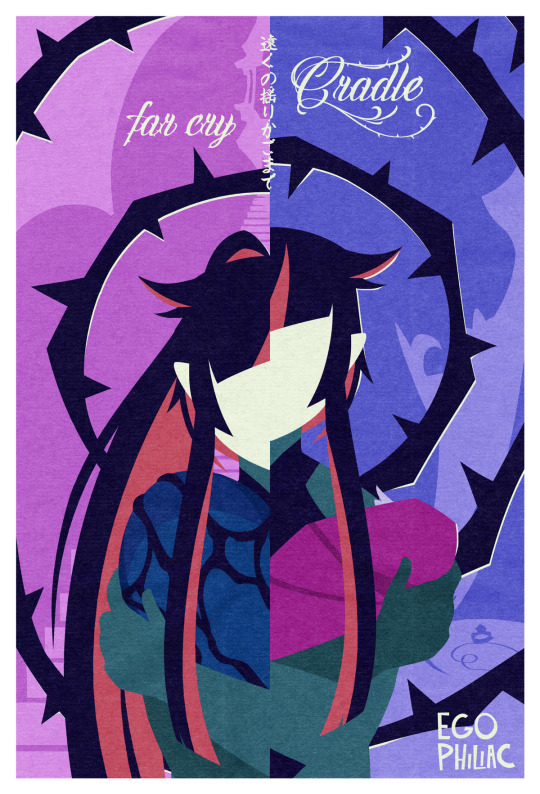
I've had a beast of a cold for the last few days, but I wanted to get this out before the new year! while I've sort of made my peace with my first take on Lilia's UM poster, I really wanted to do a version with the new context that chapter 6 gave us. because. c'mon.
(don't worry, Lilia can carry ALL HIS KIDS AT ONCE)
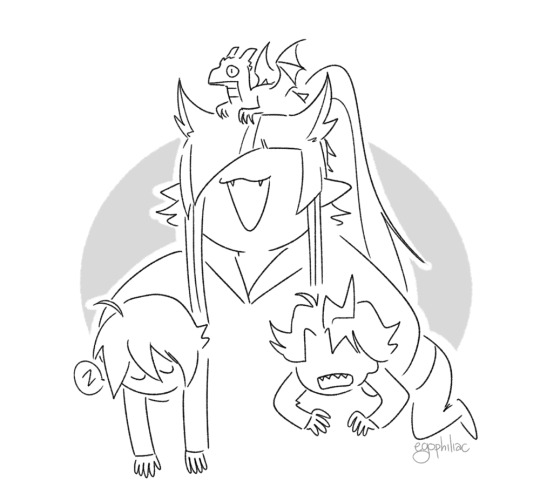
#art#twisted wonderland#unique magic posters#twisted wonderland spoilers#twisted wonderland episode 7 part 6 spoilers#twisted wonderland book 7 spoilers#twisted wonderland book 7 part 6 spoilers#the dragon cradle does make me laugh#no look i understand it's a ~visual metaphor~ for malleus' isolation#(and also lets lilia run up a bunch of steps all dramatically later)#but the image of this enormous ten-story cradle with the teeny tiny little egg in the middle of it is pretty hilarious#the draconias are SO extra about everything#now if you'll excuse me i have to go fall over for what remains of the year#happy 2024!#(i apologize to the poor person who asked a cute question about meleanor and got a giant cold medicine-induced essay in response :')#(i have been incapable of coherent thought for...a while now)
6K notes
·
View notes
Text
The Belt
As a kid, I hated the belt. I didn’t own one, but I dreaded it being slapped against my backside. And considering that I was a sulky, petulant kid, I frequently felt its sting. There was a good reason that I didn’t wear belts. When you are obese, the belt it the las thing you’d ever want to put on your body. Consider the rolls of fat that encircle the waists…
View On WordPress
#childhood experiences#Emotions#Essay#essay aboout how we are perceived#essay aboout life#essay about awareness#essay about perception#Essay and Thoughts#Feelings#How we are perceived#Life experience#Personal Essay#personal experience#personal impressions#Personal Narrative#personal opinion#Personal Story#relationships#Thoughts#thoughts on appearance
2 notes
·
View notes
Text

thinking about how viktor's crutch design is actually pretty unergonomic (no cushioning on the shoulder/handhold? also why does the handhold have that decorative pointy bit, that's just prime hand stabbing position), but it's in house talis colors. so do you think. that jayce made it. and put so much effort and love into it, and it's incredibly elegant, but ultimately he doesn't have firsthand experience with the fine particulars of being disabled (until his trip straight down to the bottom of a canyon where wizard viktor tossed him pity lizards occasionally), so the result is more form over function.
and yet viktor used it for years, unchanged, red/gold unobscured, even though it prob caused long term damage and pain that could've been avoided with minor alterations. out of affection.
I don't know that much about crutches so anyone's free to correct me, but I do have nerve sensitivity in my arms that's easily triggered with incorrect posture/muscle tenseness/hard pressure, and every time I see that crutch, I'm like boi. that's absolutely fucking up your arm. my fingers are going numb just looking at it. that kind of long-term acute pressure easily causes chronic nerve compression but viktor canonically is sentimental about holding onto important objects that remind him of jayce, like the cog and blanket...
#jayvik#jayvik meta#arcane meta#arcane#viktor arcane#posted these thoughts on bsky and then was like wait i can't fit all the words on there#crashing out so hard over viktor arcane that I'm out here writing essays abt him#i never do this do u understand
806 notes
·
View notes
Text
You want me to write? The thing that put Alan Wake in the Dark Place?
3K notes
·
View notes
Text



hey chat is this anything
#saw this shit and IMMEDIATELY thought of ciel almost getting eaten in emerald witch#dont look at the perspective too hard im tired#kuroshitsuji#black butler#sebastian michaelis#ciel phantomhive#mine#anime#manga#art#my art#queen dont cry#i have three college essays due tomorrow and work at 6 am#good use of my time#cant believe i still have to say this but s*bac*els dni
740 notes
·
View notes
Text
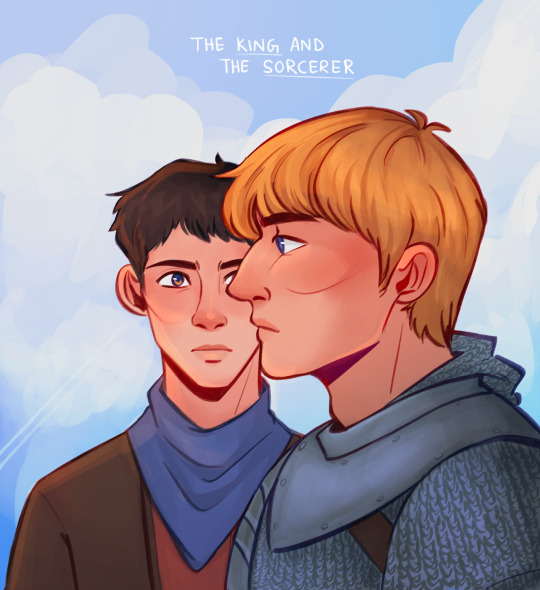
He watches him like a ghost
#or like a mother bird#i could write essays on merlins devotion to arthur i fear#but i'm too tired to form any comprehensible thought tonight except holding up a picture of them and crying#the tragedy of bbc merlin strikes yet again#Merlin devotion borders on obsessive if we think too hard#actually no it IS obsessive who are we kidding#which is why i think i really enjoy dark! merthur Au's#by s5 he was not far from reaching that point#but oOH the way they care for each other#merlin#bbc merlin#merthur#merthur fanart#merlin fanart#merlin art#merthur art#bbc merlin fanart#ps. shoutout if you recognise the reference used for this pose!#sketch#merlin emrys#arthur pendragon
1K notes
·
View notes
Text
Five of Swords
-Lbh and Lqg during the five years-
“𝑇ℎ𝑒 𝑓𝑖𝑣𝑒 𝑜𝑓 𝑠𝑤𝑜𝑟𝑑𝑠 𝑖𝑠 𝑎 𝑐𝑎𝑟𝑑 𝑜𝑓 𝑐𝑜𝑛𝑓𝑙𝑖𝑐𝑡, 𝑑𝑒𝑠𝑝𝑖𝑡𝑒 𝑡ℎ𝑒 𝑓𝑎𝑐𝑡 𝑡ℎ𝑎𝑡 𝑡ℎ𝑒 𝑐𝑎𝑟𝑑 𝑑𝑒𝑝𝑖𝑐𝑡𝑠 𝑎 𝑣𝑖𝑐𝑡𝑜𝑟𝑦 𝑡ℎ𝑒𝑟𝑒 𝑖𝑠 𝑛𝑜 𝑤𝑖𝑛𝑛𝑒𝑟 𝑖𝑛 𝑡ℎ𝑖𝑠.”

I loved overlaying the meaning of this card on these two, makes me Insane
Only one more day of me pleading you to take a look at this 🥺 I just think it’s fun to think about
#Finding cards that can represent Plot Points in Svsss and how they affect the characters involved is So Fun#I have so many thoughts and I’m kinda proud of the essay even though there’s some things I definitely would change and add now#sinn bee art#svsss#liu qingge#svsss fanart#luo binghe#svsss liu qingge#svsss luo binghe#bingliu
420 notes
·
View notes
Text
“The cell saga is bad because the z fighters were idiots the entire time”
that’s the POINT

THE CELL SAGA IS ABOUT ARROGANCE
EVERYONE IS BEING STUPID BECAUSE THEY THINK THEY KNOW WHATS GONNA HAPPEN
THEY THINK THEYRE AHEAD OF THE CURVE
BUT THEY AREN’T
THIS IS LITERALLY SHOWCASED MULTIPLE TIMES THROUGHOUT THE SAGA
IT STARTS WITH TRUNKS AND BUILDS FROM THERE
GOHAN LITERALLY LETS CELL LIVE BECAUSE OF HIS ARROGANCE
THE ONLY REASON CELL IS DEFEATED IS BECAUSE GOKU, GOHAN, AND VEGETA ALL LET GO OF THEIR ARROGANCE AND PRIDE AND FIGHT TOGETHER
GOKU STEPS IN TO HELP GOHAN, WHICH HE DIDNT DO BEFORE BECAUSE HE THOUGHT GOHAN COULD DO IT HIMSELF
VEGETA HELPS GOHAN AND LANDS THE PENULTIMATE BLOW ON CELL, DESPITE WANTING TO BE THE ONE TO END CELL HIMSELF
GOHAN FINALLY FINISHES HIM LIKE HE REFUSED TO DO BEFORE
THEY ALL LET GO OF THEIR ARROGANCE AND FINISH THE JOB
THATS THE THEMATIC POINT OF THE SAGA
RAHHHHHHH🦅🦅
#I don’t think Toriyama imagined all this when writing the cell saga#but I’m sure he at the very least focused on the idea of arrogance throughout it#I mean#that’s the entire point of Gohan Vegeta and Goku’s arc#they’re all arrogant and prideful#Gohan and Vegeta are prideful in themselves#while Goku is prideful in Gohan#they all think that they’ll be able to do this#they are all imagining one of them being strong enough to end it#but they don’t realize that they ALL need to help until the end#I need to start making video essays man#dbz#db#dragon ball#dragon ball z#Goku#son goku#Gohan#son gohan#Vegeta#cell#cell saga#cell arc#the eagles are there at the end because I thought it’d be funny#pardon the capitalization#I thought it’d be funny
975 notes
·
View notes